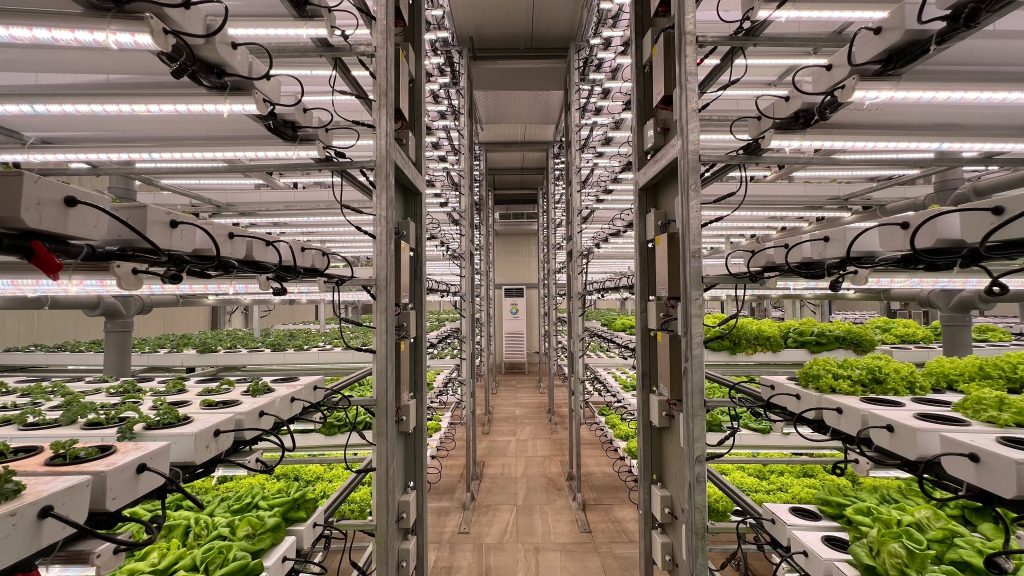The need for agricultural chemicals will rise as the world’s population increases since they guarantee global food security and sustainability. It presents a fantastic opportunity for professionals wishing to launch a career in the agricultural chemical sector. So is agricultural chemicals a good career path?
This blog post will examine why working with agricultural chemicals can be a great profession. We will look at the advantages of working in the agricultural chemical industry, the knowledge and expertise required, and the opportunities for advancement.
Read on to learn why a job in the agricultural chemical sector can be a suitable choice for you if you’re thinking about it.
Global Reach

Do you know what are agricultural chemicals? Agricultural chemicals are used in farming to safeguard crops against weeds, illnesses, and pests. Moreover, these compounds are utilized to increase crop growth and yield. Pesticides, herbicides, and other chemical agents are among them.
Agriculture is a worldwide sector and industrialized and developing nations frequently employ agricultural chemicals. As a result, businesses that manufacture agricultural chemicals are present worldwide and operate in several countries. As a result, employment in the sector may offer exposure to other cultures and markets and international travel opportunities.
Experts in agriculture chemicals can significantly impact the world’s food security, and they are essential in tackling the problems that face agriculture today. Also, they collaborate to make sure agricultural chemicals are safe and effective.
Diverse Job Opportunities
Many work opportunities in the agricultural chemicals sector require various skill sets and educational backgrounds. In this response, we will explore how many jobs are available in agricultural chemicals and why is agricultural chemicals a good career path.
Statista estimates that the global market for agricultural chemicals will be valued at about 217.24 billion dollars in 2021. In 2030, this is anticipated to rise to about 279 billion dollars. Food demand is growing due to population increase, urbanization, and dietary changes, which drive this growth.
These are a few examples of employment roles in the sector of agricultural chemicals:
- Agricultural Chemists: To increase crop yields and prevent pests and diseases, agricultural chemists create and test new chemicals.
- Agricultural Engineer: An agricultural engineer aims to increase productivity and processes by designing and developing machinery and systems.
- Agroeconomists: They assist farmers in production and marketing decisions by analyzing the economic effects of agricultural policies and practices.
- Agricultural Sales Representative: Farmers and other clients are sold agricultural chemicals and related items by agricultural sales representatives.
- Microbiologist: To create strategies for eradicating pests and diseases, microbiologists investigate microorganisms in soil and water.
- Biochemist: To create new agricultural chemicals and products, biochemists research the chemical processes in living things, such as plants and animals.
- Agricultural And Food Scientists: They research solutions to raise the standard and security of food and agricultural goods.
- Soil and Plant Scientists: To create innovative strategies for increasing crop yields and soil health, scientists research soil and plant characteristics.
- Farm Manager: Farm managers are responsible for directing all aspects of daily farm operations, including applying agricultural chemicals.
- Risk Management Analyst: Risk managers assess and control the dangers of using agricultural pesticides.
Competitive Salaries
Competitive salaries are one of the many reasons why is agricultural chemicals a good career path, particularly for those seeking the highest paying positions in this industry.
According to the Bureau of Labour Statistics statistics, the median annual salary for agricultural and food scientists was $74,160 as of May 2021. In this industry, the top 10% of earners made over $128,160 annually, while the bottom 10% earned less than $44,160.
To put this into perspective, as of May 2021, the average yearly wage for all occupations in the US was $58,260. As a result, people working with agricultural chemicals can anticipate earning substantially more money than the typical employee.
Also, the best paying jobs in agricultural chemicals industry call for specific knowledge and abilities, such as those in sales and marketing, quality control, and research and development. For instance, according to Glassdoor regulatory affairs manager in the agricultural chemicals sector can make an average of $91,067 per year, while a research scientist can make an average of $80,117 annually.
Positive Impact

One example of a career path in agricultural chemicals is major chemicals a good career path, which uses raw materials to make chemicals for industrial and commercial purposes. The development and promotion of safe, efficient products with little environmental impact can be done by experts in this industry.
Because chemicals in agriculture can have unforeseen effects on the ecosystem and biodiversity, experts in this field work to create efficient and environmentally responsible products. Agricultural chemical specialists can contribute to preserving natural resources and a more sustainable future for future generations by trying to lessen the environmental impact of chemicals.
A career in agricultural chemicals can significantly impact the livelihoods of farmers and their communities. Professionals working with agricultural chemicals can enhance harvest quality by offering efficient and reasonably priced goods. More jobs in the agriculture sector, higher farmer profitability, and improved economic possibilities for rural communities can all result from this.
Technological Advancements

Due to recent technical advancements, the agricultural chemicals industry is now a desirable and promising career choice for chemists and engineers.
One area of competence in the agricultural chemicals industry is the production of specialty chemicals. Insecticides, herbicides, and fertilizers are only a few examples of the uses for which these compounds are frequently generated in modest quantities. Specialty chemical development requires a lot of research and development to ensure its effectiveness and safety for the environment and the customer, making specialty chemicals a good career path.
Technological advancements have made the production of new, more efficient agricultural chemicals possible. One application of nanotechnology is the creation of nanoparticles that can be added to pesticides to boost their effectiveness. Biotechnology has also enabled the creation of genetically modified crops resistant to disease and pests, eliminating the need for traditional pesticides.
Through technical advancements, agricultural chemical manufacturing has improved. Production is now quicker, more accurate, and safer for employees thanks to automation and robotics. As a result, businesses can directly sell their products at more affordable pricing due to higher production and lower costs.
Environmental Impact

The use of agricultural chemicals also negatively affects the environment, including soil erosion, water pollution, a loss of biodiversity, and risks to human and animal health. There is a greater demand for professionals capable of developing and promoting eco-friendly products due to the increased attention and regulation given to agricultural chemicals.
One example of a specific career path within agricultural chemicals is farming/seeds/milling a good career path. Professionals in these positions may be hired by businesses that produce and sell products like fertilizers, herbicides, and insecticides, as well as seeds and other inputs. They might collaborate with farmers and other relevant people to promote organic farming methods and lessen the harmful effects of using chemicals. They might, for instance, create and launch products that are less harmful to non-target species and more focused on those species. They might work on precision agriculture technologies that increase yields while decreasing the use of chemicals.
The possibility of soil and water contamination is another aspect of the environmental impact that agricultural pesticides could have. Experts in this subject may create and implement the best administration techniques to reduce the danger of contamination and clean up harmful pollutants. They might also work on initiatives like developing bioremediation techniques, which use biological processes to break down chemical residues, or on the study and creation of new products that are more environmentally friendly or biodegradable.
Conclusion
Agricultural chemicals are a promising and intriguing career path for people who want to make a difference in agriculture. The need for agricultural chemical specialists is more significant than ever due to the expanding worldwide population and rising demand for food production.
Additionally, the business offers a wide range of production, sales, marketing, and research and development opportunities, offering good career chances for those with various skill sets and interests.
Overall, it is obvious why is agricultural chemicals a good career path for those interested in agriculture and its preservation, given the variety of roles, competitive compensation, and prospects for professional progress.




















